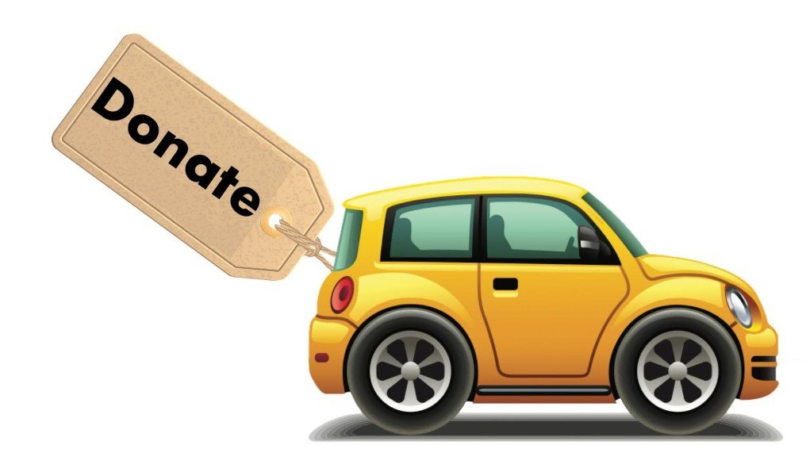Donating your car to a charity in California can create a positive impact on the lives of others. Plus, it may mean a nice tax deduction for you. If you have an old car you no longer need, here’s a guide to navigating the donation process in California:
RELATED: Rene Russo: Iconic Actress from ‘Lethal Weapon’ to ‘Nightcrawler’
RELATED: Ayesha Curry: Recipes, Family & Lifestyle Inspiration
10 Steps to Donate a Car in California
1. Choose a Charity
The first step is to select a reputable charity that aligns with your values and that accepts vehicle donations. Do some research about different charities’ missions, reputations, and how they will use your donated vehicle.
2. Contact the Charity
Once you have chosen a charity, contact them to start the donation process. They will likely have specific instructions and requirements regarding the types of vehicles they accept, as well as any necessary paperwork.
3. Gather Your Paperwork
Ensure you have these important documents ready:
- Vehicle Title: You must have the car’s title with a clean title. A clean title simply means it’s free from liens or claims on the vehicle.
- Registration: Provide your current vehicle registration.
4. Assess the Car’s Condition
Be honest when evaluating your car’s condition. Inform the charity about any mechanical issues or damages. The charity needs to know the vehicle’s status to determine if they can sell it or if it will be used for parts.
5. Prepare the Vehicle for Pickup
- Remove personal belongings: Make sure to remove all personal items from the car.
- Consider cleaning: A simple wash and interior cleaning will help present the vehicle in a better light to the charity.
RELATED: Who is Mossimo Giannulli? Biography Of The Fashion Designer And Lori Loughlin’s Husband
RELATED: Alexia Umansky: TV Personality ‧ Kyle Richards’ Daughter
6. Schedule the Pickup
The charity will usually arrange for your vehicle to be picked up for free. Work with the charity to schedule a convenient date and time for the pickup.
7. Sign the Title
You’ll need to release ownership of the vehicle by signing the title and transferring it to the charity. The charity may give you instructions on how to handle this step.
8. Complete a Release of Liability
California has a “Release of Liability” form attached to the title. Complete the Release of Liability, informing the DMV that you’ve donated your vehicle. Mail it in or use the DMV’s online services. This step protects you from any future liability associated with the vehicle.
9. Receive the Tax Receipt
Once the charity sells or auctions the car, they will send you a tax receipt. The receipt will usually reflect the fair market value or the sale price of the vehicle, allowing you to claim a tax deduction.
10. File for Your Tax Deduction
When filing your taxes, you may be eligible to claim a tax deduction for your vehicle donation. The amount of the deduction will depend on the value of your vehicle and how the charity uses it.
Additional Considerations
- Donating Non-Running Vehicles: Some charities accept non-running vehicles, but it’s a good idea to check with your chosen charity beforehand.
- Potential Tax Benefits: Consult with a tax advisor about potential tax deductions related to car donations.
Donating a car can be a rewarding way to give back to your community and support a cause you care about. By following these steps, you can make the car donation process in California easy and beneficial for all involved.
Conclusion
Donating your car in California is a simple and generous way to support your favorite charity. By carefully planning your donation and following the steps outlined, you make a positive difference and potentially benefit from a tax deduction.
RELATED: Shilo Sanders: The Rise of Deion’s Son and College Football Star
RELATED: Aaron Goodwin: Net Worth, Wife, Ghost Adventures & TV Personality
FAQs
- What types of cars can I donate? Most charities accept cars, trucks, vans, SUVs, boats, motorcycles, and even RVs, whether they are running or not.
- How is the value of my donation determined? The value of your donation is usually based on the fair market value of your vehicle or the price the charity receives when it sells the car.
- What if I don’t have the title to my car? In some cases, charities can still accept a car donation without a title. Contact your chosen charity and the California DMV for instructions.
- Do I need to smog my car before donating? While not always required, a current smog certificate may increase the value of your vehicle donation.
- Where can I find reputable charities that accept vehicle donations? Research online resources like Charity Navigator (https://www.charitynavigator.org/) or GuideStar (https://www.guidestar.org/) to find and evaluate charities in your area.













